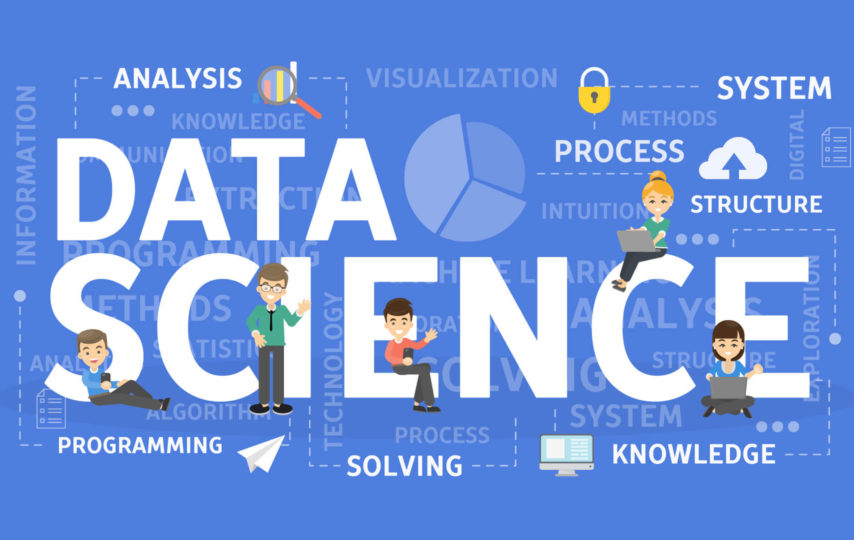Data science has emerged as an essential field with the ability to collect, store, and analyze massive amounts of data. The use of data science has revolutionized industries like healthcare, finance, and transportation, among others. However, with this vast amount of data comes ethical considerations. The ethical concerns of data science can have far-reaching implications with the potential to impact individuals, businesses, and society as a whole. In the USA, UT Austin Courses make data scientists capable of balancing innovation with responsibility, ensuring that they uphold ethical standards in their work.
Market Scope of Data Science in the USA
The market scope of data science in the USA is vast and growing rapidly. The use of data science has revolutionized industries such as healthcare, finance, transportation, retail, and many others. According to a report by the Bureau of Labor Statistics, employment in computer and information technology occupations, including data scientists, is projected to grow 11% from 2019 to 2029, much faster than the average for all occupations.
The demand for data scientists in the USA is increasing due to the abundance of data generated by businesses and organizations. Companies are seeking data scientists to help them make better decisions, improve efficiency, and gain a competitive edge in their respective industries. According to a report by Glassdoor, the average salary for a Data Scientist in the USA is $126,468 per year.
The COVID-19 pandemic has accelerated the demand for data scientists as organizations rely on data-driven decision-making to navigate the uncertainty caused by the pandemic. Data scientists are needed to analyze the impact of the pandemic on various industries, including healthcare, finance, and transportation, among others.
The market scope of data science in the USA is not limited to large corporations. Small and medium-sized businesses are also recognizing the importance of data-driven decision-making and are seeking data scientists to help them achieve their goals.
In this article, we’ll explore some of the ethical considerations that data scientists need to consider.
Privacy and Security
Privacy and security are critical ethical considerations in data science. Data scientists must collect, store, and analyze data to obey privacy rights. They must ensure that data is used ethically and that it is protected from unauthorized access. Data scientists must also ensure that they comply with relevant laws and regulations, such as the General Data Protection Regulation (GDPR) and the California Consumer Privacy Act (CCPA).
For instance, a case study revealed that Equifax, a consumer credit reporting agency, experienced a data breach that affected approximately 143 million Americans. As a result, the company faced significant backlash, including lawsuits and fines. This highlights the importance of protecting personal data and ensuring that ethical considerations are a priority in data science.
Bias and Discrimination
Bias and discrimination are significant ethical considerations in data science. Algorithms and machine learning models are used to make decisions about individuals, such as hiring, lending, and medical diagnoses. These models may include biases, leading to unfair or discriminatory outcomes. Data scientists must take steps to identify and mitigate biases in their models, such as ensuring that data sets are representative of the population they are meant to serve.
A notable example is the case of Amazon’s hiring tool, which was found to be biased against women. The model was trained on data sets that were heavily skewed towards male candidates, leading to a bias against female candidates. This highlights addressing bias in data science to ensure fair outcomes.
Transparency and Accountability
Transparency and accountability are critical ethical considerations in data science. Data scientists must ensure that their models and algorithms are transparent, meaning that the decision-making process is understandable and can be explained. They must also be accountable for the decisions their models and algorithms make, meaning that they can explain the reasoning behind the decision and how it was made.
For instance, Google developed an artificial intelligence system called Duplex, which could make phone calls and book appointments on behalf of users. However, the company faced backlash for the lack of transparency and accountability, leading to calls for increased regulation and ethical considerations in AI development.
Data Ownership and Use
Data ownership and use are other significant ethical considerations in data science. Data scientists must consider who owns the data and who has control over its use. They must ensure that they use data ethically and with the explicit consent of the data owner. They must also make sure that they do not use the data in ways that the data owner did not authorize.
For instance, Facebook faced backlash for its role in the Cambridge Analytica scandal, where user data was obtained without consent and used to influence political campaigns. This highlights the importance of ethical considerations in data ownership and use.
Social Impact
Data science can have a significant impact on society. Models and algorithms used to make decisions can have far-reaching implications, affecting individuals, communities, and entire populations. Data scientists must consider the potential social impact of their work, ensuring that their models and algorithms do not perpetuate discrimination or bias and that they do not negatively impact society.
For instance, predictive policing algorithms have faced criticism for perpetuating racial bias, leading to unfair outcomes and further marginalization of minority communities.
Ethical Considerations
Data science has several ethical considerations that data scientists must consider, including privacy and security, bias and discrimination, transparency and accountability, data ownership and use, and social impact. These considerations ensure that data is collected, stored, and analyzed ethically and that the resulting decisions do not negatively impact individuals, businesses, or society.
Importance of Balancing Innovation and Responsibility
Balancing innovation with responsibility is crucial in data science. Innovations in data science have the potential to revolutionize industries and improve lives, but they must be done ethically and responsibly. Data scientists must ensure that they prioritize ethical considerations, even as they innovate and develop new technologies.
Recommendations
Data science has the potential to bring about significant advancements in various industries. However, Ethical considerations must remain at the forefront of decision-making processes. To achieve this, data scientists must prioritize transparency, accountability, and responsible use of data. They must also consider the potential social impact of their work and ensure that they do not perpetuate discrimination or bias. Regular training and education in ethical considerations should be a priority for data scientists to ensure that they stay informed and up-to-date with ethical considerations.
Conclusion
Data science has the potential to bring about significant advancements in various industries. However, data scientists in the USA must balance innovation with responsibility, ensuring that they uphold ethical standards in their work. By considering the Data Science and Business Analytics course, Data Scientists will be capable of addressing issues of privacy, bias, transparency, data ownership, and social impact. Data scientists can ensure that data science is used ethically and that it benefits individuals, businesses, and society as a whole. Ultimately, responsible use of data science can bring about positive change and improve the lives of people worldwide.








